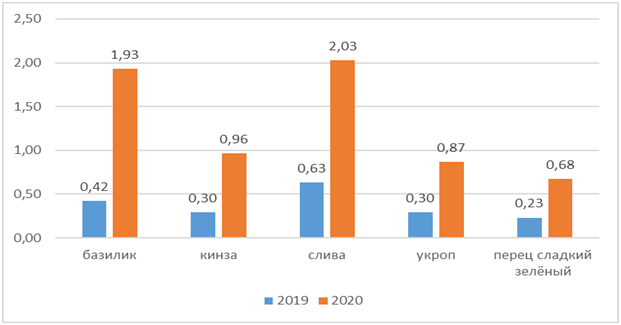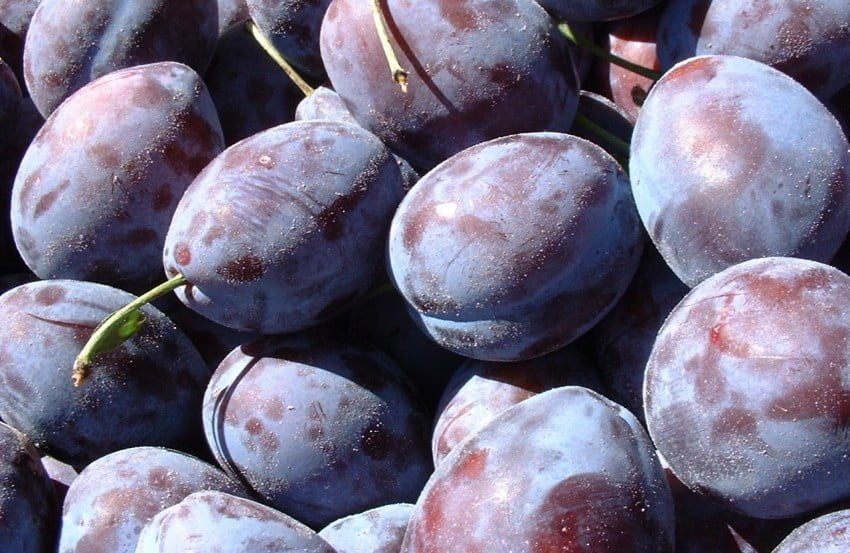EastFruit analysts reviewed changes in wholesale pricing of fruits and vegetables as of the end of the first week of November 2020 compared to the same period of the previous year. They identified that vegetables and fruits rose in most significant price in Uzbekistan.
Their analysis revealed that in Uzbekistan the sharpest rise in prices was noted for herbs, plums, and sweet green peppers. Basil was the leader of the top 5 horticulture products that increased in price. Wholesale prices for basil rose 4.5 times over the year. In second place was cilantro and rose in price by 3.3 times. Coming in third were fresh plums with a price increase of 3.2 times. Dill prices grew 3 times and the remaining product in the top 5 for price growth was sweet green pepper, which rose 2.9 times over the year.
Read also: Uzbekistan exported melons to 17 countries
Participants of the Uzbek market say that the main reason for the growth in herbs is their growing export to Russia. According to EastFruit, Uzbekistan is the second largest supplier of products to Russia in this category, second only to Iran. In the first 8 months of 2020, supplies of fresh herbs to Russia brought Uzbekistan more than $8 million in export earnings.
Chart: Comparison of top-5 produce items (basil, cilantro, plums, dill, and sweet green peppers) in terms of annual wholesale price increase, 2020 vs. 2019, in US dollars per kg

Source: Calculations based on EastFruit Wholesale Price Database
The price increase for plums is explained by a decrease in the yield of this product in Uzbekistan and in other countries, particularly in Moldova. In turn, plum prices are also high in Russia making it possible to sell these fruits for export at a higher price. Prices in the domestic market are also growing. However, the price during this period is no longer very indicative since the plum sale season in Uzbekistan is ending. Meanwhile, in Moldova, the plum season begins later and lasts until February thanks to modern technologies for storing plums in fruit storage facilities.
The use of the site materials is free if there is a direct and open for search engines hyperlink to a specific publication of the East-Fruit.com website.




